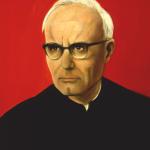Barmen on Christian Nationalism
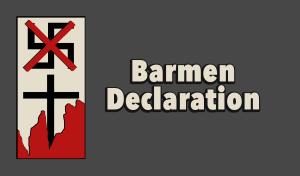
We’ve been here before! It was 90 years ago, May 29-31, 1934, that a hundred thirty-nine delegates – representing Lutheran, Reformed, and United Lutheran-Reformed churches — met at the Gemarke Church, Barmen, in Wupperthal, Germany. They composed what we today remember as the Barmen Declaration. The parallels between what our German predecessors faced in 1934 and what we Americans face in 2024 are uncanny, preternatural, and haunting. Barmen on Christian Nationalism? Yes.
Barmen on Christian Nationalism in Nazi Germany
Barmen on Christian Nationalism in Nazi Germany looks like an advance skeuomorph of Christians Against Christian Nationalism in 2024 America. The National Socialists had consolidated their power by 1933 and were envenoming the culture with hate. Nazis rallied nationalist unity by scapegoating Jews, communists, homosexuals, children with physical disabilities, children with mental disabilities, and gypsies. Such Minderwertig – people whose lives are not worth living – were poisoning the blood of the Teutonic master race, the Aryans. To purify the blood of das Volk, the true German Aryans, the Minderwertig should be eliminated, said the Nazis.
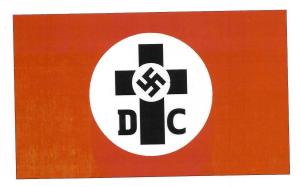
One third of the 18,000 Lutheran clergy embraced this Nazi ideology and were willing to subject the governance of their churches to national administration by the state. Naming themselves the Deutsche Christen (German Christians), they comingled Christian symbols with Nazi symbols. Swastikas became embedded in crosses and appeared on vestments, flags, and posters. Sermons were written by the Nazi propaganda ministry in Berlin and mailed weekly to pastors for reading at Sunday’s worship service. Christian nationalism had become incarnate.
Those clergy, laity, and theologians meeting at Barmen felt under siege by a new heresy, by an idolatrizing of the state within the very Body of Christ. Something had to be done to right what was upside down. The moment of confession had arrived. What must be affirmed as a Christian and what must be anathematized?
There are those among us who foreswear creeds and confessions because they divide between who’s in and who’s out. Yes, they divide. Yet, there comes to us those moments where we must decide between truth and falshood, moments that cry out for an orthodox imprimatur. So sang James Russell Lowell in 1845…
Once to every man and nation
Comes the moment to decide,
In the strife of truth with falsehood,
For the good or evil side;
Some great cause, God’s new Messiah,
Offering each the bloom or blight,
And the choice goes by forever
Twixt that darkness and that light.
Jesus is Lord, Not Adolph Hitler

What needed affirming is that Jesus is Lord. Adloph Hitler is not. That’s what Barmen on Christian Nationalism declared.
The formulation of the text was led by sockdolager Karl Barth, subject to the group’s revision of corrigenda. Take a look at a sample of the text, one article of the six that structured the Barmen Declaration. Here is what the declaration affirmed.
Article 4. “You know that the rulers of the Gentiles lord it over them, and their great leaders exercise authority over them. It shall not be so among you; but whoever would be great among you must be your servant.” (Matt. 20:25, 26.)
Note how the declaration language is simple Scripture. It’s a text you might hear read or mumbled on any Sunday during worship. Does this sound like dramatic political theology to you?
Here is what the declaration anathematized.
“We reject the false doctrine, as though the church, apart from this ministry, could and were permitted to give to itself, or allow to be given to it, special leaders (Der Führer ?) vested with ruling powers.”
This simple biblical language reaffirmed that faithful Christians have one and only one lord. That Lord is Jesus Christ. That lord both transcends and judges all human lords, leaders, and powers. If the leadership of Der Führer conflicts at any point with the Christian duty to love one’s neighbor, then the Christian is bound to obey God and not the earthly ruler. What we see here is implicit public theology minus political rhetoric.
The Resistance of the Confessing Church
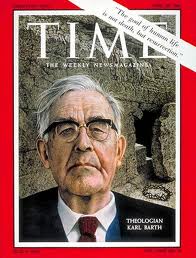
Barmen signers and supporters became known as the Confessing Church, die bekennende Kirche. A second third of the Lutheran clergy plus numerous Reformed and United Church followers adopted the “Confessing Christians” label.
The Nazi regime responded by conscripting pastors into the military and sending them to the front lines of battle where they would likely get shot. To support Barmen on Christian Nationalism became dangerous.
What about the final third of the German Evangelical Church? What about the six thousand Lutheran clergy not belonging to either the German Christians or the Confessing Church? They attempted to separate church from politics. I wonder how that worked out?
Barmen on Christian Nationalism in America?
We can’t ask Karl Barth or the other bekennende Christen of 1934 to tell us in America what to do in 2024. Yet, we can benefit from Barmen courage and willingness to draw out public implications of familiar theological commitments. Nobody at Barmen could foresee that Nazi hate speech would lead to concentration camps, firing squads, gas chambers, mass graves, and World War II. But Americans of 2024 must ask: what might happen here?
Curiously, both conservative fundamentalist evangelicals and progressive Lutheran evangelicals interpret the Barmen Declaration the same way. For example, Liberty University constitutional law attorney Johnny B. Davis — who opposes modern liberal religion, secularism, and what he calls “statism” — believes the Barmen pastors and theologians provide a “great example” we in America should heed.
“Martin Niemoller, Karl Barth, and Dietrich Bonhoeffer organized Protestant Evangelicals into the Confessional Church to uphold biblical principles and resist the takeover of the Protestant church by the German Christians …. The American Church faces a hostile secular culture and a government that is increasingly statist and anti-Christian. The state has become an idol in an American culture that rejects truth and righteousness. A bold stance for truth and Christ is required by scripture and is the key to transforming the culture and saving the American Republic.”
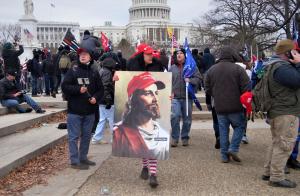
Similarly, Craig Nessan, a systematic theologian within the Evangelical Lutheran Church in America, bridges the ninety-year gap with parallel advice.
“This commentary highlights several implications of the Barmen Declaration from the struggle of the Confessing Church in the Nazi period for the situation of becoming confessing church today in relation to flight, migration, and integration of refugees, especially in the United States.”
The MAGA-Machiavellian wing within the Republican Party echoes the kind of hate speech Barmen signatories were hearing in 1934. Much to our chagrin, a poster of Jesus wearing a MAGA hat was photographed during the January 6, 2021 Capitol insurrection. Avowed American Christian Nationalism has become a scandal provoking uncalculated embarrassment and trepidation.
Conclusion
In 1934, the political moment forced the followers of Jesus Christ to make a public confession. Karl Barth asked: what should be considered orthodox Christian and what must be rejected, anathematized, and opposed. If Jesus Christ is Lord, then neither Berlin nor Washington are.
PT 3240 Barmen on Christian Nationalism
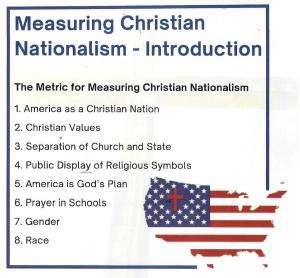
PT 3230 Measuring Christian Nationalism, Part 0
PT 3231 Measuring Christian Nationalism, Part 1
PT 3232 Measuring Christian Nationalism, Part 2
PT 3233 Measuring Christian Nationalism, Parts 3,4
PT 3235 Measuring Christian Nationalism, Parts 5,6
PT 3237 Gender and Race in Christian Nationalism, Parts 7,8
PT 3238 Roger Olson on Christian Nationalism
PT 3239 ELCA on Christian Nationalism
PT 3240 Barmen on Christian Nationalism
▓
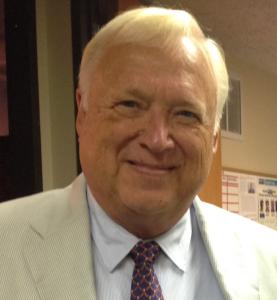
For Patheos, Ted Peters posts articles and notices in the field of Public Theology. He is a pastor in the Evangelical Lutheran Church in America and emeritus professor at Pacific Lutheran Theological Seminary and the Graduate Theological Union. His single volume systematic theology, God—The World’s Future, is now in the 3rd edition. He has also authored God as Trinity plus Sin: Radical Evil in Soul and Society as well as Sin Boldly: Justifying Faith for Fragile and Broken Souls. He recently published. The Voice of Public Theology, with ATF Press. See his website: TedsTimelyTake.com and blog site, https://www.patheos.com/blogs/publictheology/ .
▓




